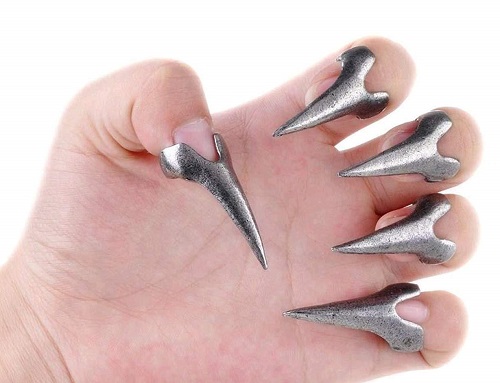FWP:
SETS == KYA
The āveñge ending is an archaic form of the modern Urdu āʾeñge ; some divans update the spelling, but I follow Arshi in retaining the original; GRAMMAR.
The use with saʿī of farmānā , 'to command', rather than karnā , 'to do', suggests respect and formality: the friends would 'command the doing of' an attempt. 'Bestow' doesn't quite capture it, but it's the best I could come up with. Of course, the use of the language of respect also opens the clear possibility of a sarcastic or ironic reading as well.
In this whole ghazal, because of the refrain, the emphasis on inshāʾiyah speech is unusually pronounced. The real pleasure of it is the multivalent readings not only offered but even enforced, since both lines can be read in different tones, with different emotions, to greatly different rhetorical effect. When the possibilities of (1) are multiplied by those of (2), a veritable tree of readings fans out from the original lines. For discussion of the priceless multivalence of kyā , see {15,10}.
The present verse thus can offer a kind of encyclopedia of the lover's relationship with his friends. He wants to know whether they will help at all, he wants to know how they will help, he scorns the usefulness of their help; he finds it obvious that their help is in vain, he is indignant at the futility of their efforts. To add to the complexity, ġham-ḳhvārī , literally 'grief-eating', is both the suffering that the grief-stricken person himself undergoes, and the compassion that his sympathetic friends feel when they share his pain (see the definition above). The work done here by merī is that of 'my', and also that of 'with me'; for more on this see {41,6}.
Compare Mir's treatment of a similar theme, the absurd naivete of the friends who expect to be able to 'cure' the lover [M{40,5}]:
((ilaaj karte hai;N saudaa-e ((ishq kaa mere
;xalal-pa;ziir hu))aa hai dimaa;G yaaro;N kaa
[they 'cure' me of the madness of passion--
it's become unsound, the mind of my friends!]
In Mir's verse the lover ends up, most wittily, with the suspicion that the friends are the ones who are crazy-- by believing that they can 'cure' him, his friends have shown that their minds are more unbalanced than his own.
The present verse also works by implication, leaving a great
deal unstated. We have to know, or deduce, the connection between the fingernails,
the cutting of the fingernails by the helpful friends, the healing of the
wound, and the use of the regrown fingernails to reopen the wound. We have
to already know, or deduce, the lover's radical intransigence, without which
the verse would make no sense at all.

Nazm:
In the first line kyā is for contempt, and in the second line, for a negative question. That is, what's the good of cutting my nails-- won't they grow again? (19)
== Nazm page 19